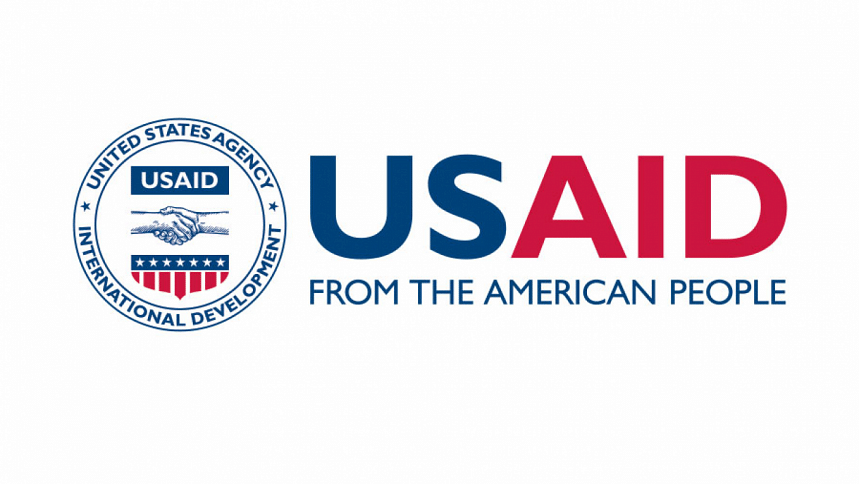US-funded projects stare at fund crunch

US-financed development projects across Bangladesh are set to face a fund crunch as USAID notifies them to stop work in line with the policies of US President Donald Trump.
While the policies raise serious concerns for development projects across the world and threaten to shut down many UN interventions, the World Food Programme will continue its food delivery service at the Rohingya refugee camps in Cox's Bazar.
A USAID memo to implementing partners asking them to stop work right away also states that "no further assistance shall be disbursed in a manner that is not fully aligned with the foreign policy of the President of the United States."
According to the UN, out of total $852.4 million requirement for the Rohingya in 2024, donors provided $548.9m, and the US provided $301 million or 55 percent.
The US has provided nearly $2 billion as humanitarian assistance for the Rohingya in Bangladesh since the outbreak of violence in August 2017, making itself the biggest donor.
Although the current suspension is for three months, there is no indication whether the US will resume all its funding commitments after that.
An official of a USAID-funded project on HIV prevention in Bangladesh said the Trump policy has created fears among the staff about their job safety.
"My job is my livelihood. I am a mid-career job holder working in the development sector for long. Now, I am fearful of what happens next. I don't know what to do if the funding is terminated," he told The Daily Star last night.
The NGO executive said that not just livelihoods but development projects in diverse sectors including health, food, agriculture, nutrition and climate change will be affected if US funds are terminated.
Donald Trump has also withdrawn from the World Health Organization and the Paris Climate Agreement and declared that he would advocate drilling and production of more fossil fuel in the US.
"This means, the global efforts to move away from fossil fuel will be heavily affected," said Humayun Kabir, former ambassador to the US.
According to the UNDP, Bangladesh faces a critical need for $12.5 billion annually to address the escalating climate crisis, but significant financing gaps in adaptation and mitigation remain, threatening economic growth.
Kabir says if implemented, Trump's policy will lead to lowering of fuel prices globally, which can have positive impacts on the economy, but the impact on climate change will be devastating.
"We will also be affected by lower climate funding for adaptation," he said.
Trump's executive order is already in force, with raids being conducted against undocumented migrants that left millions of immigrants in panic.
Kabir said the main target of Trump policy is to reduce the undocumented migrants from South America. An estimated 11 million migrants in the US are undocumented.
According to a rough estimate, there are about one million Bangladeshi origin immigrants in the US, and a portion of them might be undocumented.
According to the central bank, Bangladesh received $511.96 million in November and $565.04 in December last year from US, making it the largest source of foreign remittance.
"If those undocumented are detained and deported, it will definitely affect Bangladesh economy and the migrants' families," Kabir said.
Prof ASM Ali Ashraf, chairman at Dhaka University's international relations department, says the immigrants are a very important part of the US economy and any wholesale deportation is unlikely as it may face legal cases.
He explained that the Trump administration will review if the Biden administration has made any fund commitment with favouritism and resume funding if there is no such indication.
In countries like Bangladesh, the US fund is very well rationalised and comes for true needs of the people.
"I think eventually humanitarian assistance policy will not have much change in Bangladesh," he said.

 For all latest news, follow The Daily Star's Google News channel.
For all latest news, follow The Daily Star's Google News channel. 








Comments